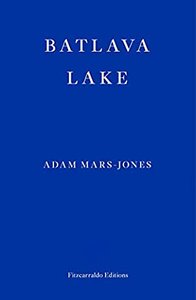 Peter Grant is an ordinary police officer, until he finds himself interviewing a ghost about a mysterious death. Pretty soon, he’s working for DI Thomas Nightingale, the Metropolitan Police’s one-man bastion against supernatural crime, which seems to be on the rise again after several decades. So, in between learning magical secrets that haven’t been taught for fifty years or more, Peter has to contend with an entity apparently causing normally placid individuals to commit violent murders, and with a feud between rival spirits of the Thames.
Peter Grant is an ordinary police officer, until he finds himself interviewing a ghost about a mysterious death. Pretty soon, he’s working for DI Thomas Nightingale, the Metropolitan Police’s one-man bastion against supernatural crime, which seems to be on the rise again after several decades. So, in between learning magical secrets that haven’t been taught for fifty years or more, Peter has to contend with an entity apparently causing normally placid individuals to commit violent murders, and with a feud between rival spirits of the Thames.
Its author already a television and tie-in writer, Rivers of London is Ben Aaronovitch’s first non-franchise novel, and the first of a projected series (with two sequels to follow later in 2011). It’s a promising start, but one not without flaws: there are times when the narrative momentum loses out rather too much to the establishment of the world and characters. Aside from the occasional dry quip, Peter Grant comes across as largely anonymous, both as a narrator and character; and the secondary human characters, even the eccentric Nightingale, don’t fare much better. The descriptions of London tend to focus on bald geographical details — the names of streets and landmarks — a technique I didn’t find particularly evocative.
Beneath and between all this, however, is some interesting fantasy. When Grant encounters the river spirits, there are tantalising hints of magic lurking behind the everyday, the deep archetypes these beings represent:
I felt the force of [Father Thames’s] personality drag at me: beer and skittles it promised, the smell of horse manure and walking home from the pub by moonlight, a warm fireside and uncomplicated women.
The way that Aaronovitch reaches back into history for the book’s mystery and its solution is very satisfying (one gains a strong sense that this novel could only have been set in London); and I like the practical approach to magic — for example, if you change shape in this fictional world, it damages the tissues ofyour body — which gives it a real sense of consequence.
That last point links to a subtext which may prove a key dynamic as the series unfolds: the clash of old and new. This is represented in the characters of Nightingale (the fusty old wizard-figure who has no truck with technology) and Grant (the young mixed-race copper determined to reconcile magic with his knowledge of science). In the present volume, it’s also there in the contrasting portrayals of the river spirits,with Father Thames an Olde-Worlde fairground showman, and Mother Thames a Nigerian matriarch. Indeed, in Aaronovitch’s fictional reality, magic itself is an old phenomenon brought into the modern world; the theme of old versus new is suggested in Rivers of London more than it’s explored, but it will be interesting to see if and how it develops over time.
Aaronovitch’s series may not quite have hit the ground running with Rivers of London, but there are clear signs here that a real treat may be in store in a book or two’s time.
This review first appeared in Vector 267, Summer 2011
Elsewhere
Ben Aaronovitch’s website
Some other reviews of Rivers of London: Duncan Lawie for Strange Horizons; Ian Simpson for Bookgeeks; Sharon at Vulpes Libris.
Like this:
Like Loading...


 Peter Grant is an ordinary police officer, until he finds himself interviewing a ghost about a mysterious death. Pretty soon, he’s working for DI Thomas Nightingale, the Metropolitan Police’s one-man bastion against supernatural crime, which seems to be on the rise again after several decades. So, in between learning magical secrets that haven’t been taught for fifty years or more, Peter has to contend with an entity apparently causing normally placid individuals to commit violent murders, and with a feud between rival spirits of the Thames.
Peter Grant is an ordinary police officer, until he finds himself interviewing a ghost about a mysterious death. Pretty soon, he’s working for DI Thomas Nightingale, the Metropolitan Police’s one-man bastion against supernatural crime, which seems to be on the rise again after several decades. So, in between learning magical secrets that haven’t been taught for fifty years or more, Peter has to contend with an entity apparently causing normally placid individuals to commit violent murders, and with a feud between rival spirits of the Thames.
Recent Comments